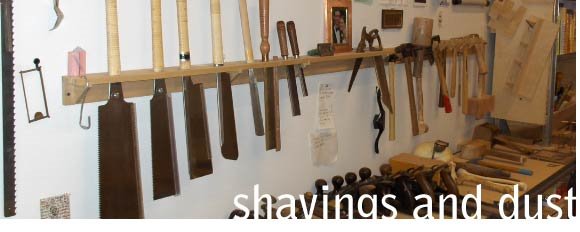The binder for this lovely finish comes from the Japanese Sumac tree, which looks not unlike our own sumac trees back home. This is a very different tree, however: the sap of the Japanese Sumac contains a compound called urushiol, which is the same toxin that is found in poison ivy. The highly skilled craftspeople that work with urushi lacquer go through a period of extreme discomfort during which they are pretty much covered with the painful and highly itchy rash that any sufferer of poison ivy can relate to. I have heard anecdotally that if someone who works with urushi takes a break from it for a week or two they have to build up a tolerance all over again when they come back to it again, that no matter how long one has been working with urushi one still has to get re-acclimatized.
When I was young poison ivy was not of great concern. I had a small case of it once or twice, but mostly I ran through the woods with abandon and very little repercussion. In my early teens I started going to the local YMCA summer camp for a week or two each summer. Camp Hanes taught me a lot of things: it taught me how to be responsible for younger people as a councillor in training (a lesson I put in to practice now in my work life) about rock climbing and backpacking, about how to sneak cigarettes and about power hierarchies and inequities.
One year I was art of a group called the Rangers. It was not as militaristic as it sounds: it was sort of like a work/study program. We went to morning workshops and then in the afternoon we did a few hours of work for the camp. I quite enjoyed it, actually, as even then, when I was thirteen or fourteen or whatever I was I liked to be on the inside, to be part of the workings of a place rather than simply attending the place. It was that same tendency that would lead me to start working backstage on shows, which would take me out of the great outdoors and into large dark rooms and the world of the entertainment industry.
I don't know if Camp Hanes still does the ranger program, I don't know if they would be allowed to. We swung axes and used saws to prune trees, we clipped shrubs, we drove the golf carts around hauling trash, in general doing stuff in the eighties that would probably be looked at very differently in the litigious 21st century.
I can't for the life of me remember who the guy in charge of us was, but I remember what he looked like: skin swarthy form day after day in the North Carolina summer sun, leathery from years of being a Camel smoker. He would smoke cigarettes while we worked, which always made us as campers (who were not allowed to smoke, officially) highly jealous and greatly desirous of a cigarette. I remember him as tall (though in retrospect he may not have been) and I remember he had what we used to refer to as "Dunlop's disease:" his belly done lopped over his belt. He had the thick, slow, round accent of the North Carolina hills, and a parsimony with words that will be familiar to people who have hung out around farmers and country folk at all.
One day our task was to clear the weeds from a small hill side next to the tennis courts. This is probably almost 30 years ago and I remember it vividly. Having been raised baby my mom to recognise plants by their leaves, I immediately spotted that the bulk of the weeds were poison ivy. The boss man handed me a swing blade (a sort of horizontal blade set on a long handle) and told us to get to it.
"But that's poison ivy," I piped up, thinking maybe he had not noticed. "Yep." "And you want us to cut it with these?" "Yep." "Can I at least go up to my cabin and put on jeans?" "Nope. Y'all can shower when yuh finnish." So we got to work. To this day I remember the smell of those huge leaves as the swing blade cut their stems, the baking, sultry heat of the North Carolina summer sun, the sunburn starting to make my scrawny back pink. I did shower, but to no avail, by the next morning the first welts started to form. Then more. Then more yet. All the way up both legs and on both arms the poison ivy rash stood out. I remember how painful it was, how terrifying as it kept spreading. A couple of weeks later I went with my dad to his little home town in Michigan to visit my grandparents and I remember walking up the street with one of those curved chopping knives that I had found in the attic. It reminded me of a battle axe so I was carrying it around. The poison ivy was so itchy I remember stopping on the sidewalk and using the chopping knife to scrape at my legs, bent over and crying in frustration as the welts were torn away and the yellow pus inside them oozed down my legs. Ever after I have been extremely sensitive to poison ivy and have mostly kept well away.
A few days ago, in Kyoto, we took the students to a sushi making experience. We sat at long tables while the sushi chef (who was also the architect of the space and the owner) showed the students how to use the long sushi knife to cut slices of very fresh fish, and how to ball the rice and shape the sushi. It was a fantastic experience and left us all stuffed full of sushi.
After we had eaten, Aki (the sushi chef) told us how the building we were in had been a factory where urushi lacquer was made and applied to rice bowls and spoons. He talked about how he had bought the building and turned it into this beautiful ryokan, or Japanese style hotel, and showed us some lovely and quite old lacquer ware that he had collected, some of which had been made in that factory when it was still a factory. We all listened and learned and generally had a good time. He told us about the big slab tables that we were sitting at and about how he also loves to work wood, and how he had hand planed them and applied the urushi lacquer finish to them himself. And he told us all how the space had only been open for three months but that he was very proud of it.
The next morning when I awoke my wrist was itching. Not a normal "my wrist itches" sort of itch, but a deeper, more painful itch that I have come to know well. Somewhere in that lovely space there must have been some urushi lacquer that was not fully cured. And I found it. And that is how I came to have poison ivy in Japan, and how I now know that the Japanese for "calamine lotion" is "cadamine." And that is is really hard to find anti-itch stuff in a drug store when you can not read or speak the language.
The sushi was fantastic though.
 |
| Ouch. |



No comments:
Post a Comment